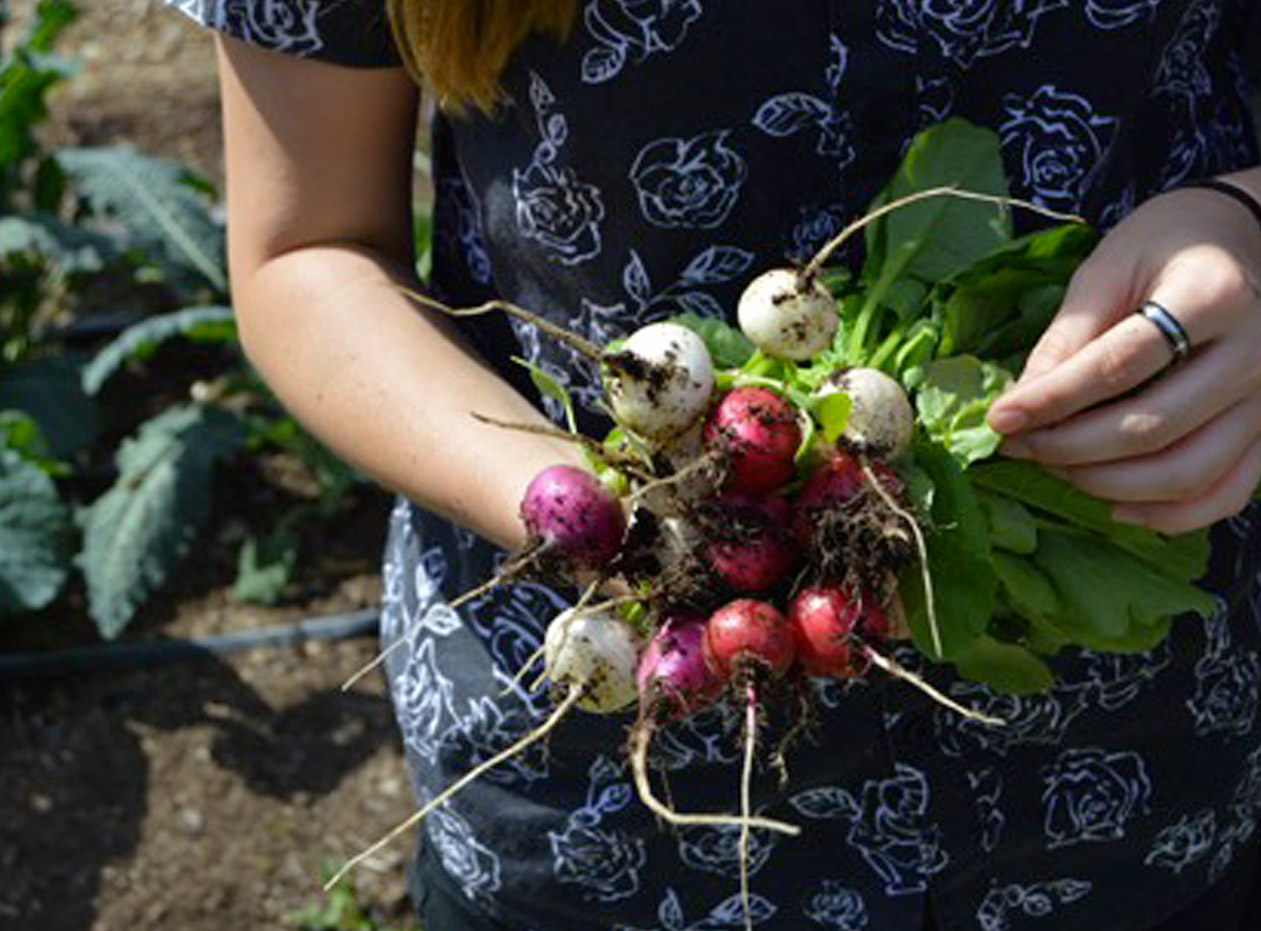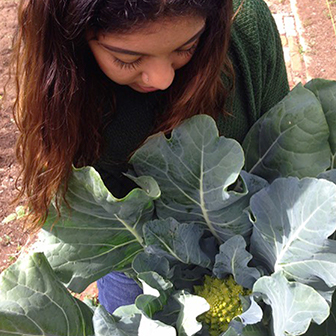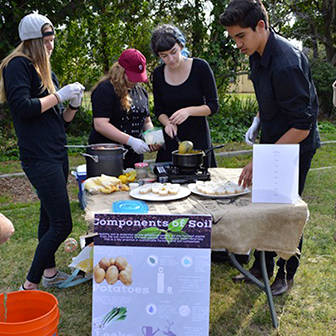PROJECT DESCRIPTION
INSTRUCTORS
SCHOOL SITE
LEVEL
SUBJECTS

Senior students unknowingly became urban farmers as they explored firsthand the challenges and triumphs of growing seasonal, sustainable food in the very public HTHMA Garden. The food grown, as well as thematic units covered in environmental science, provided inspiration for the creation of conceptual “bites” served at our First Annual Garden to Table Expo. The Expo acted as a platform to share both a meal and our experiences in the Garden, connecting people to the environment through local, seasonal, and sustainable food.
Twelfth grade Environmental Science students discovered that growing food is not as easy as it first may seem. Bountiful spring harvests and subsequent produce sales generated both recognition and funding for the work that we were doing in the garden; student engagement was high and the possibilities seemed endless. Originally, our project plan was to continue planting, growing, and harvesting, and to touch upon key concepts in small-scale farming and agribusiness. While some of our produce was being sold through a pilot Community Supported Agriculture (CSA) program, the remainder of the produce was reserved for our final exhibition: the Garden to Table Expo. However, after returning from spring break we discovered that our Garden had suffered a good deal of vandalism and nearly all of our produce had been destroyed. Our CSA program came to an abrupt end, and we began pulling out dead plants, rebuilding soil, and planting crops anew. Luckily, throughout the semester we had been working with our local chapter of Slow Food, as well as Wild Willow Farm and the Explorer Garden. Through these groups, we were able to secure donations of all the produce we lost, as well as procure some specialty items. And thus the project was reborn…
In small teams, students were tasked with choosing one ingredient still growing in our Garden as the focal ingredient of a conceptual bite-sized dish. The dish had to represent a theme or topic that we had studied throughout the semester in Environmental Science (e.g. soil cultivation, companion planting, compost, drought, etc.), and had to be conveyed on the plate in an aesthetically pleasing manner using locally-sourced, seasonal, and sustainable ingredients. Through multiple practice rounds and critique sessions with professional chefs and food critics, student teams honed their focus and flavors to increase audience impact. Seven of the original 15 teams were chosen to mass-produce their bite at our First Annual Garden to Table Expo which was hosted in the HTHMA Garden. Accompanying infographics aided in conveying environmental science themes and connecting consumers to their food. To heighten environmental stewardship, our Expo was zero-waste and all food and plating was compostable.
For recipes, infographics, and photos from our Garden to Table Expo, please visit http://hthmagarden.weebly.com/spring-exhibition.html
Harnessing the energy of 49 individual and enthusiastic (and sometimes distracted) second semester seniors to produce a cohesive, professional, high-stakes exhibition has been one of the highlights of my teaching career and my lifetime. Looking back on the semester, I’m overwhelmed by the support of teachers and community partners as well as the adaptability, resilience, and grit of my student farmers. Nearly every side project, as well as our final exhibition, was impacted by the vandalism in our Garden. However, we were able to reach out to partners in our community that we’d been working with throughout the year to pull off a truly beautiful and highly meaningful end result. Networking and building community partnerships is so important – and the proof is in this project. Had we not built relationships with other professionals and organizations and truly embraced the essence of “Adult World Connection,” our Garden to Table project would not have been the dynamic, impactful, and successful project that it was.

Working in the garden was awesome, and I’m a much better human for having done so. I’m healthier, stronger, more confident, more independent, and more thoughtful about the global consequences of even the smallest of actions. The project was great too, and if there’s a Garden to Table Expo next year, I’m definitely going to come. — Audrey D.
The best part about working in the garden was to be able to interact with the food we grew and cook and make projects with it. I hadn’t had an experience so close with food and I think that this experience helped me gain a deeper insight of the process farmers have to go through and how hard it must be for them to keep up with the big factory farms. — Eduardo G.
I was amazed at how beautiful and professional everyone’s food looked. It felt like a real food festival, and all the bites were colorful and everyone really wanted to eat them. I was super stressed that we wouldn’t come up with a great dish for the project, but I was blown away with what we ended up with. Having people come up to us and say they had to come back and get seconds of our dish was really awesome. — Rosanna V.
I really loved the change of pace from sitting in a classroom to being outdoors and working with our hands. It was a totally different way to interact with my classmates that built a really positive class culture. — Taylor M.
I definitely think more about where my food comes from. I can’t always buy the best produce, but it’s always in the back of my mind now because now I know how much hard work goes into growing your own food. — Frida H.

